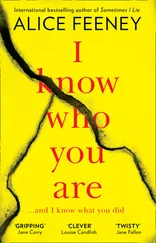“Up your bottom,” she said.
I did not correct her.
The Moscow Rules, designed by CIA operatives in the 1970s to outsmart the KGB:
Assume nothing.
Never go against your gut.
Everyone is potentially under opposition control.
Don’t look back; you are never completely alone.
Go with the flow, blend in.
Vary your pattern and stay within your cover.
Lull them into a sense of complacency.
Don’t harass the opposition.
Pick the time and place for action.
Keep your options open.
I CALLED MY MOTHER that afternoon. It was early in the morning in Washington, and the phone woke her up. I knew she was sitting up in bed, fingering the telephone cord like a rosary. Her bedside table was always littered with apple cores—she ate fruit while reading at night—and the half of the bed that had once belonged to my father was a dumping ground for nuclear-safety reports.
“Sarah?” she said. I could hear the panic frothing in her voice. “Is everything okay?” [ ... ]
Our conversation was fractured by a delay after each of us spoke. The tenuous international connection turned the smallest pause for breath into something craven. I pushed my words into the first space I could find.
“I’m not in danger,” I said. [ ... ]
“This must be [ ... ] costing a fortune. [ ... ] Charge it to your dad.” [ ... ]
“I have a question,” I said. [ ... ]
“He can afford it.” [ ... ]
“My question” [ ... ]
“Are you taking photos? [ ... ] Going where Jenny went?” [ ... ]
“I just want to ask you,” I said. [ ... ]
“Re-creating Jenny” [ ... ]
Our conversation kept hitting speed bumps. “About Mr. Jones,” I said. [ ... ]
“Ed Jones?” [ ... ]
“Yes. [ ... ] What kind of [ ... ] consulting” [ ... ]
“Intelligence,” she said. [ ... ] “Intelligence operations. [ ... ] They consulted for the NSA [ ... ] the CIA.” [ ... ]
“The CIA?” I said. [ ... ]
“The Defense Department.” [ ... ]
“CIA?” I said again. [ ... ]
“Yes, the CIA.” [ ... ]
“Did he have access [ ... ] to classified information?” [ ... ]
“Classified?” [ ... ]
“To secrets?” [ ... ]
“Yes, all those guys do [ ... ] at that level. [ ... ] Not just government employees but the private sector [ ... ] contractors and consultants [ ... ] also. [ ... ] Sarah? [ ... ] Sar?” [ ... ]
“I’m here.” [ ... ]
“Are you taking [ ... ] the pictures? [ ... ] The places Jenny” [ ... ]
“Yes [ ... ] but” [ ... ]
“Be [ ... ] careful.” [ ... ]
“Mom?” [ ... ]
“Send me e-mail [ ... ] so I know [ ... ] you’re” [ ... ]
“Can you hear me?” [ ... ]
But she was gone. There was a click.
* * *
I COULDN’T SLEEP THAT NIGHT. At two in the morning, while Corinne slumbered, I locked myself in the bathroom and filled the tub. The medicine cabinet was stocked with various vials and creams. (“I always get free beauty products at work,” Corinne had told me. “Right now I’m totally obsessed with Clarins. It’s the best.”) Among the moisturizers and perfumes, I found a jar of bath balls. They were the translucent gold of amber and looked as if they were capable of suspending insects in their cores. Amber was big in Russia. Corinne said you could find beautiful amber jewelry at Izmailovo for almost nothing. I dumped two of the balls under the running water, watched them first dissolve into a viscous fluid like honey and then float into bubbles. The bubbles multiplied like cells, and the room filled with a strange, sweet smell. It wasn’t lavender. It wasn’t gardenia. And then as I sank into the water—so hot, so deliciously hot—it hit me: honeysuckle. “Honeysuckle,” I said aloud, just to savor the tickle of the word. And then I turned on the Jacuzzi—such a 1980s luxury, I thought—and opened my legs around a jet. It had been seven months since I’d had sex. My last boyfriend was a philosophy major named Peter who announced one day, with the precision of a surgeon, that he was not in love with me. “I’m not sure I ever was,” he said. “Though at one point I wanted to be.”
“Don’t do me any favors,” I said to him.
“I deserve more,” he said.
“More of what?” I said.
We had been together for eighteen months, and he’d declared his love for me many times, though in hindsight I realize he was really falling in love with himself. “You make me feel hot, and you make me feel loved,” he said once.
Early in our relationship, he had called me a miracle. “I’m not a miracle,” I told him. “I’m a human being with all kinds of flaws.” He made fun of me for being so literal, but I had to set the record straight. If he thought I was perfect, he would be disappointed. The way my father was disappointed by my mother. The way Jenny was disappointed by me. I pressed myself closer to the water’s source because I wanted to feel the rush, and I did, trembling in that hot, sweet bath until I was spent enough to sleep.
EVEN BEFORE THE SNOW FELL, the color drained out of the sky. Everything was desaturated and gray. The horizon line vanished into the monotone. I could see how weather might calcify a person, how enough days without sun could make you hard. How your humor might get bleaker, how cynicism might take root. The air was glassy and sharp, and being outside made me feel ready to break.
I didn’t hear from Svetlana for a few weeks. I called her office every day. The first few times, the man who answered just said “Nyet” when I asked for her and slammed the receiver down. I thought I had the wrong number and called back, only to be hung up on again. A few times I got her office voice-mail. I e-mailed her twice. Maybe she didn’t get my messages. In those days e-mails sometimes took days—even weeks—to go through. So I fell in with Corinne and her expats. She spent most of her time with two other American women: Leslie the NPR reporter and a pale, willowy woman named Jane who worked at the embassy. Jane arranged to have mail from the States delivered to Corinne via diplomatic pouch. “It helps to have friends in high places,” she said.
I joined them on their trips to the CD market to buy pirated music. We went to see American movies at the Radisson. One night we went to the American Bar & Grill for burgers ( gamburgery in Russian) and beer.
“Is it true,” I asked Jane, “that half the people in the embassy are spies?”
“All I know is I’m not a spy,” she said. “I’m from Minnesota. We don’t know how to keep secrets.” Her hair was fair and fine as a duckling’s; downy pieces stuck up around her temples, suspended by static. She wore glasses with frames the color of jade.
“And at the Russian embassy in D.C.?” I said. “Aren’t most of the so-called diplomats spies?”
Jane swiped a french fry through the puddle of ketchup on her plate. “Are you one of those James Bond junkies who turns every coincidence into a conspiracy?” she said. And then, before I could answer, she said, “God, I love ketchup. It’s embarrassing how much I love it. I’m such a stereotype. The midwesterner who loves ketchup. But I do. I put it on everything. Eggs, mac ’n’ cheese, grilled cheese sandwiches. I can’t help it. Sometimes I think I just eat fries as a ketchup-delivery system.” She laughed at herself.
“And what’s really annoying is you never get fat,” said Corinne. “If I ate the way you do, I’d gain like twenty pounds.”
“You’d never let that happen,” Leslie said.
Silence fell over the group like a blanket extinguishing a fire. It was the awkward quiet of people who don’t know each other that well, who still feel obligated to fill the spaces between them. Corinne, Leslie, and Jane were held together by the flimsiest of threads: they had nothing in common beyond nationality. In New York they might never have met. As a group they manufactured fun, but there was a sense that they were all settling for one another’s company. All expat relationships are glazed with transience. You never get too attached because you know you’re going to leave.
Читать дальше












